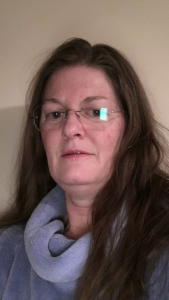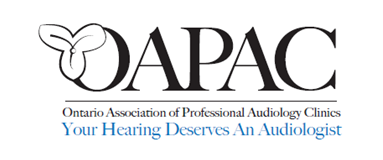WSIB Ontario restricting available products under Program of Care for Noise Induced Hearing Loss (POC-NIHL)
As of that day, the WSIB will only fund hearing aids, assistive devices and other hearing aid manufacturer supplied items required by injured workers for their rehabilitation of Noise Induced Hearing Loss (NIHL) from three of the manufacturers previously available to prescribing Audiologists in Ontario. This change was announced recently, without consultation with injured workers, providers, and other stakeholders.
Personally, I see many issues with this program change, including but I am sure not limited to:
a) Audiologists and Physicians are the only professionals in Ontario with the licensed act of prescribing hearing aids. When an individual is best served through the prescription of aids from one of the manufacturers not on the WSIB funded list, I, as the prescriber, will be in the position of having to decide to either not prescribe the most suitable products in order that the injured worker has his equipment funded, or prescribe the most suitable products and hope that the worker will pay out of pocket. Document # 17¬01¬07 of WSIB states that “No health care practitioner shall request a worker to pay for health care or any related service provided under the insurance plan.” Audiologists and Hearing Instrument Practitioners in Ontario will have to make the decision of prescribing what they feel is less than optimal equipment or explaining to the injured workers that the prescribed equipment is not funded by WSIB. To remain a provider under the new guidelines will position the prescribing Audiologists as the ‘bad guys’, asking workers to agree to either fund their own equipment or accept the alternate, although not optimal, choice. Prescribing less than optimal choices creates professional issues for Audiologists and puts us in a position of possible disciplinary action from our regulatory body, the College of Audiologists and Speech Language Pathologists of Ontario (CASLPO).
b) There is provision to apply for exceptional funding in a case were an injured worker’s need cannot be met under the regular funding guidelines. It requires additional paperwork to be submitted to the sole WSIB Audiologist, the decision maker for such submissions. Based on my most recent submission made about ten (10) months ago, a decision was not received for almost six months due to the backlog of requests. The present January 9, 2017 changes will only further backlog this situation.
c) Some injured workers with NIHL, like some hearing impaired persons, find it difficult to switch to a different manufacturer when replacing older hearing aids, due to differences between hearing aids. Fitting with product from one of the three funded manufacturers when the worker has worn product from a different manufacturer will often necessitate more counselling, and result in increased frustration for workers due to the increased number of appointments, increased travel and increased time away from work or family for these appointments as they become comfortable with the changes.
d) From my perspective as an Audiologist, the issues created by this planned change of policy will mean that I may not be able to provide the best choice of equipment for the injured workers, and will have difficulty meeting the goal of best possible care. This is against my obligations as a licensed professional, and as a caring person striving to provide the best rehabilitation possible. I believe the goal of the NIHL Program of Care for injured workers is the same, but the changes implemented today will put every service provider in this moral and ethical dilemma.
e) Since the introduction of the NIHL Program of Care, there have been minor changes from time to time, often without consultation of the stakeholders. There has been no significant change to compensation since the program was implemented in 2004. In difficult cases, were there may be letters and/or phone consultation with WSIB or other involved parties such as physicians and employers, there is no compensation method in addition to the regular POC fees received for all cases, whether complex or not.
The upcoming changes will make the provision of the best care possible for injured workers within NIHL more difficult for all involved. In some cases, providers may feel that the provision of service to these workers is putting them in professional, ethical and moral situations they do not agree with, and may choose to withdraw as providers of the Program of Care for NIHL, further contributing to problems with access to care for those with hearing loss.
These are my personal opinions; I would encourage all stakeholders to express theirs.
UPDATE:
I posted earlier about the changes to the WSIB Program of Care (POC) for Noise Induced Hearing Loss (NIHL) that are EFFECTIVE TODAY. For more information, check out this website. I agree that fiscal responsibility is important but I also feel the changes are severely limiting our ability, as hearing healthcare professionals, to provide the best options for workers suffering NIHL.
httpss://fair4workers.com
About the Author:
 Nancy Zantinge founded Owen Sound Audiology Clinic in 1996 to promote quality of life through awareness of hearing conservation, and audiological assessments and rehabilitation. Her terrific team of registered audiologists and support staff continues to meet the unique communication needs of each client and their family. She is always on the watch for new talent and suggestions for new and innovative services.
Nancy Zantinge founded Owen Sound Audiology Clinic in 1996 to promote quality of life through awareness of hearing conservation, and audiological assessments and rehabilitation. Her terrific team of registered audiologists and support staff continues to meet the unique communication needs of each client and their family. She is always on the watch for new talent and suggestions for new and innovative services.
Visit the website of Owen Sound Audiology Clinic by clicking here.


 Workplace Safety and Insurance Board of Ontario will be changing access for injured workers with Noise Induced Hearing Loss (NIHL) on January 9, 2017.
Workplace Safety and Insurance Board of Ontario will be changing access for injured workers with Noise Induced Hearing Loss (NIHL) on January 9, 2017.